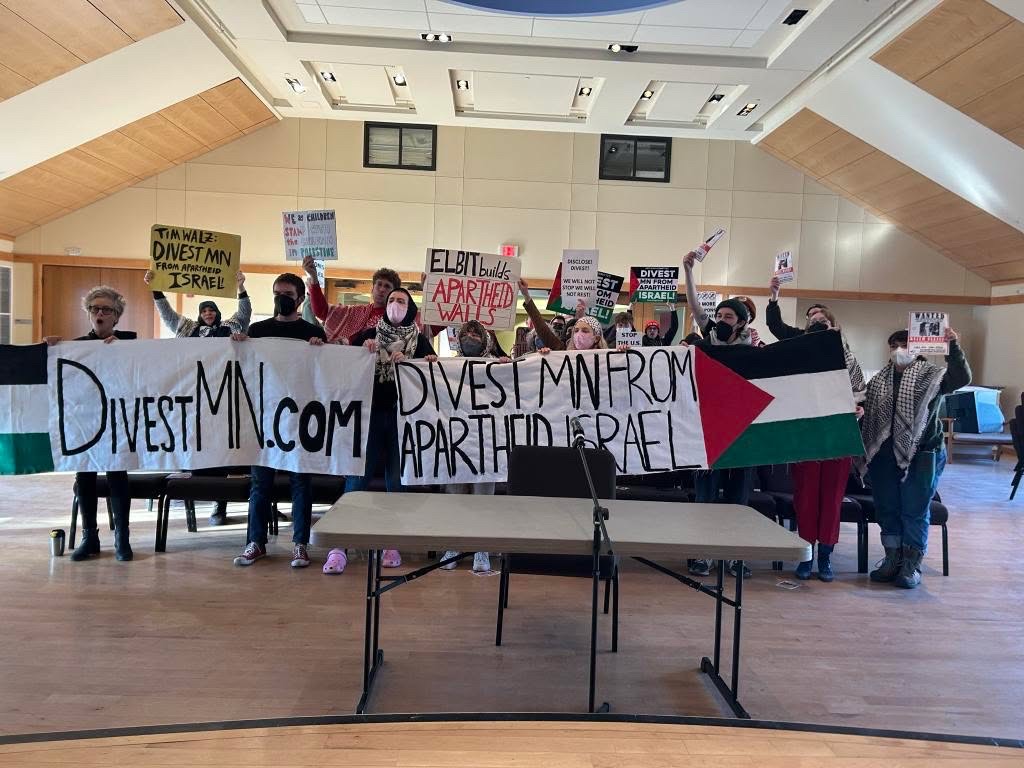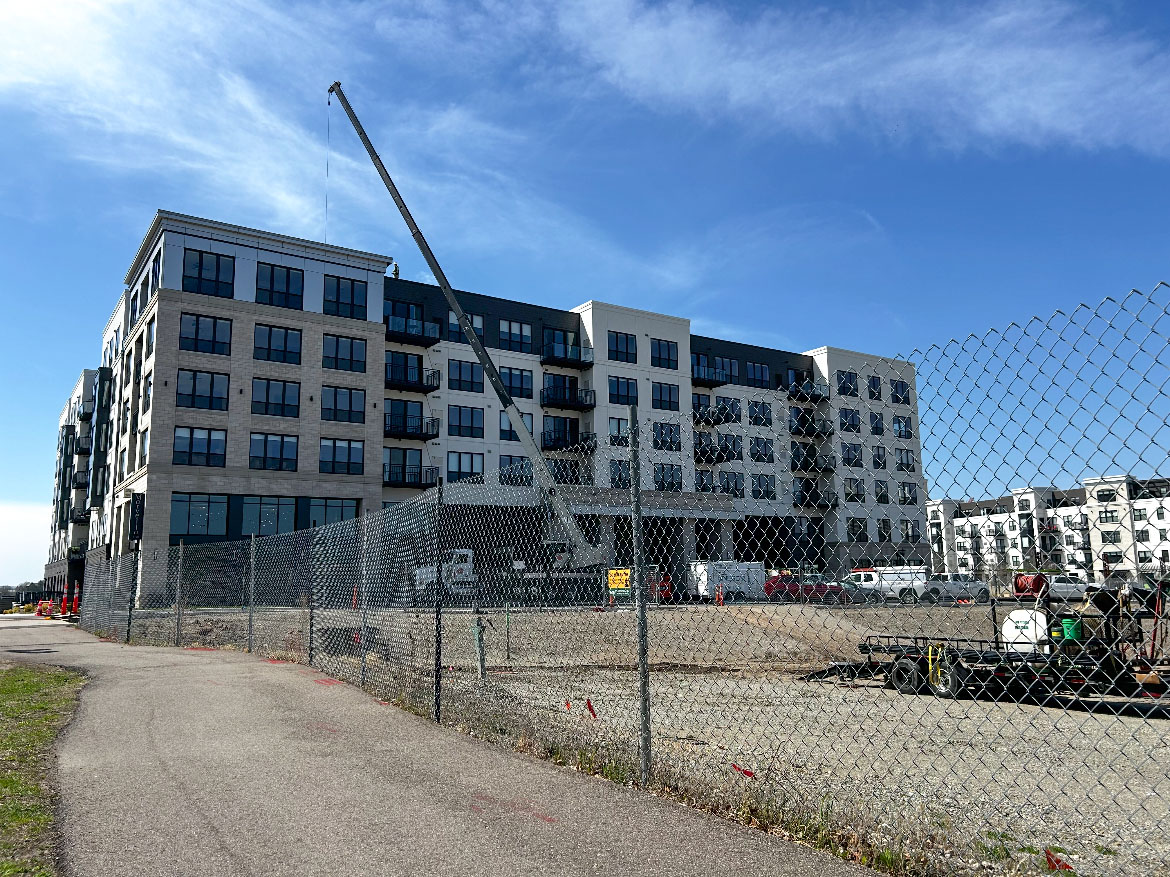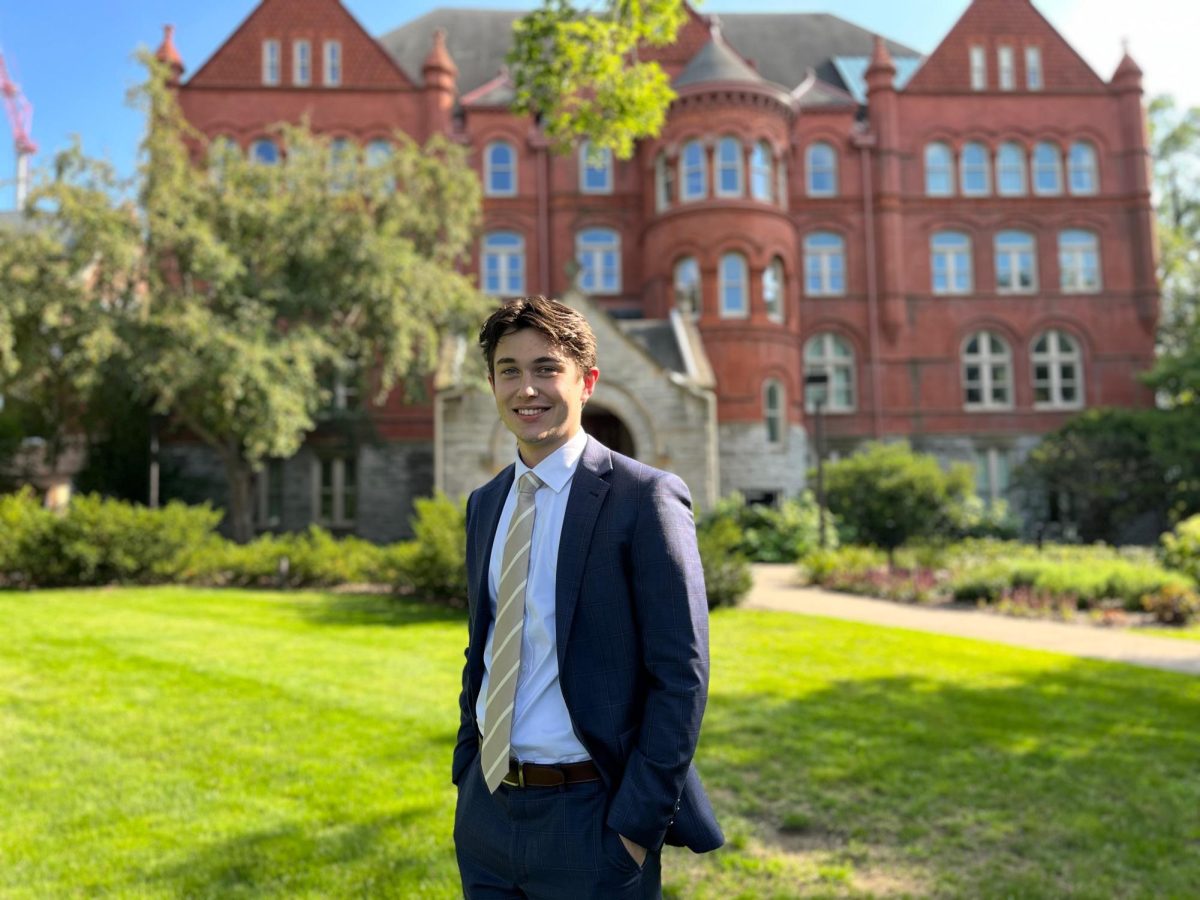On Saturday, March 1, members of the greater Twin Cities community gathered at New City Center in Minneapolis for Anti-War Committee Minnesota’s (AWC) first State Board DIVESTment meeting. They held this event in response to the recent limited attendance of Minnesota’s State Board of Investment (SBI) quarterly meeting on Dec. 10, 2024, which resulted in the exclusion of public voices calling for the divestment from Minnesota Investment Funds in Israel in response to the ongoing genocide in Gaza. The next meeting of SBI, scheduled for March 5, has been postponed. SBI has not yet announced a new date nor reasons for the postponement.
AWC has been organizing since 1998, when a group of Minnesotans began advocating against the invasion of Iraq. Today, they are committed to the fight against the Israeli occupation of Palestine with their main campaign focusing on U.S divestment from Israel. For months, AWC has been organizing with other pro-Palestinian groups, attending SBI’s meetings. During these public assemblies, members of the Minnesotan community present testimonies to the board. Members of the AWC often testified, calling for the board’s divestment from Israel’s genocide of the Palestinian people.
However, in early December, SBI announced that their upcoming meeting would be held online and encouraged the public to submit their testimonies via email that members of the board would read out during the meeting. On Dec. 10, protestors gathered in front of the Capitol building, hoping their chants would reach the board members inside the building. Employees of the Capitol told them that all of SBI was working remotely that day, allowing only 25 of the protesters to come inside the building and attend the Zoom meeting, which they were allowed to silently observe. Out of the 28 testimonies submitted, none were read aloud.
“We’ve been coming up with different ways to respond to [the board’s decision to not include testimonies in the meeting],” Chelsey Sondland, a member of the AWC, said. “The idea I had was what if we recorded our own meeting and made the statements that we would have made in December, where we didn’t get to go … and delivered it to them and we put it online and made it known that this is supposed to be a public hearing event. It’s the people’s money that is supposed to go back to the people of Minnesota and we deserve to be heard. We deserve to have a say in how our representatives invest public funds.”
Attendees of the in-person DIVESTment meeting, which the AWC also streamed live through Instagram, heard 13 of the 28 speakers that were supposed to speak at SBI’s December meeting. Those who attended in person were encouraged by members of the committee to lift up signs calling for the end of the genocide that members of AWC left on each seat.
Public testimonies presented varied greatly, ranging from the perspective of a public school teacher, a student of the University of Minnesota and a member of the Twin Cities chapter of Jewish Voices for Peace (JVP).
“Alongside my fellow members of Minnesota Workers United, we have heard all the excuses, and we have seen first hand the tactics of evasion and isolation and cowardice, in attempting to silence and isolate our voices,” Neil Radford, member of Minnesota Workers United, said in his testimony. “These kinds of tricks, the shameful hiding away from people whose pensions they are responsible for investing in an ethical manner, only end up serving our goals. The SBI’s inactions exposing the confirmations [of] systemic connections between our labor, our voices and our elected officials complicity in the Israeli genocide and occupation.”
Each testimony was followed by clapping and cheers coming from the audience, chanting protest phrases such as “free, free Palestine.”
“Why do I care? Why do I fight?,” a University of Minnesota professor who goes by the protest pseudonym Xylem Galadhon asked. “What else do we do? We’re one human species. Our money is going quite directly to [the Israeli invasion of Palestine]… Minnesota is now under a lot more pressure, I mean, Trump hates Minnesota for clear reasons, so … [it is clear that] local and federal efforts do make a difference.”






